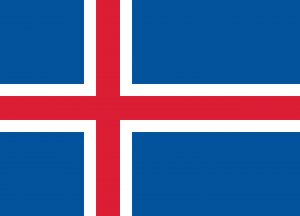Difference between revisions of "Language/Icelandic/Grammar/Prepostitions"
Jump to navigation
Jump to search
(Created page with "In Icelandic, prepositions determine the case of the following noun. For example, um (about) requires the use of the accusative case, af (of) - dative, til (to) - genitive. S...") |
|||
| Line 1: | Line 1: | ||
[[File:Icelandic-Language-PolyglotClub.png|thumb]] | |||
In Icelandic, prepositions determine the case of the following noun. For example, um (about) requires the use of the accusative case, af (of) - dative, til (to) - genitive. | In Icelandic, prepositions determine the case of the following noun. For example, um (about) requires the use of the accusative case, af (of) - dative, til (to) - genitive. | ||
Some of the most common Icelandic adjectives are: um, gegnum, að, af, frá, hjá, til, án, milli, á, eftir, fyrir. | Some of the most common Icelandic adjectives are: um, gegnum, að, af, frá, hjá, til, án, milli, á, eftir, fyrir. | ||
==Sources== | |||
Book: Learn to Speak Icelandic: without even trying, Stephen Hernandez'' | |||
Revision as of 10:44, 2 October 2021
In Icelandic, prepositions determine the case of the following noun. For example, um (about) requires the use of the accusative case, af (of) - dative, til (to) - genitive.
Some of the most common Icelandic adjectives are: um, gegnum, að, af, frá, hjá, til, án, milli, á, eftir, fyrir.
Sources
Book: Learn to Speak Icelandic: without even trying, Stephen Hernandez
